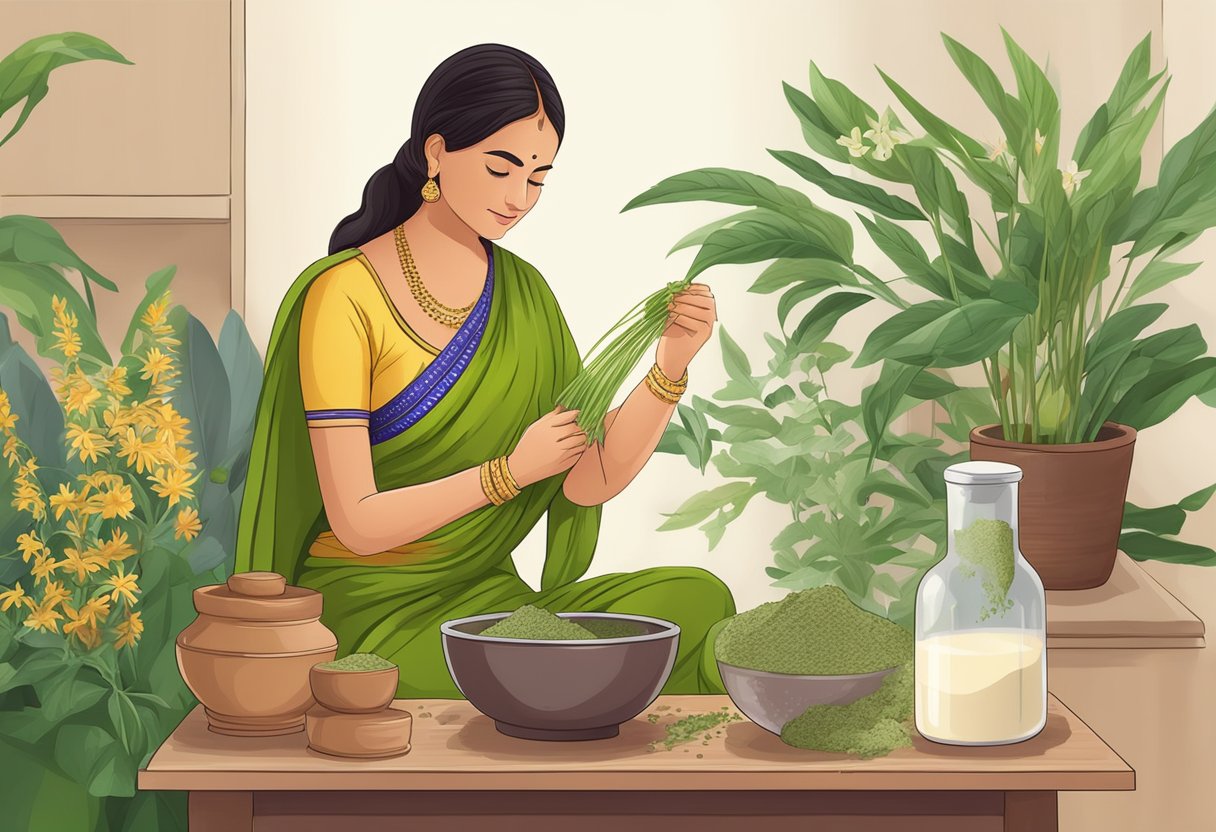Ayurvedic Treatment for OCD/Obsessive-Compulsive Disorder: Finding Harmony Through Holistic Care
Introduction to OCD/Obsessive-Compulsive Disorder
Obsessive-compulsive disorder (OCD) is a psychiatric condition that affects millions of people worldwide. People with OCD experience persistent, intrusive thoughts (obsessions) and engage in repetitive behaviors or mental tasks (compulsions) to reduce the distress caused by these thoughts. It can have a significant impact on daily life, causing anxiety and affecting relationships, work and overall well-being.
Understanding OCD/Obsessive-Compulsive Disorder
OCD is characterized by cycles of obsessions and compulsions. Obsessions are unwanted and disturbing thoughts, images, or impulses that individuals find difficult to control. Compulsions are repetitive behaviors or mental actions performed in response to these urges. While these compulsions may provide temporary relief, they often lead to a vicious cycle that worsens anxiety over time.
Etiological factors in OCD/obsessive-compulsive disorder
The exact cause of OCD is complex and may include genetic, neurological, and environmental factors. Imbalances in brain chemistry, particularly serotonin, play a role in the development of OCD. Traumatic events, stress and family history contribute to its onset.
Identify symptoms of OCD/Obsessive-Compulsive Disorder
Symptoms of OCD can vary widely and include contamination, suspicion, fear of harming oneself or others, and a need for conformity or order. Compulsions manifest as repetitive tasks such as excessive hand washing, checking, counting, or arranging objects in a particular way.
Exploring Types of OCD/Obsessive-Compulsive Disorder
OCD comes in many forms, each with unique obsessions and compulsions. Common types include contamination OCD, checking OCD, compliant OCD, hoarding OCD, and intrusive OCD. Understanding these categories is important to design an effective treatment approach.
Complications with OCD/Obsessive-Compulsive Disorder
If left untreated, OCD can cause severe anxiety, depression, impaired social functioning, and a reduction in quality of life. Anxiety from the disorder can also contribute to physical symptoms and health problems.
Ayurvedic Concept and OCD
Ayurveda, an ancient holistic healing system, offers a comprehensive approach to OCD management. Ayurvedic practitioners focus on bringing harmony to the mind, body and spirit to restore balance. Individuals can find relief from OCD symptoms through individualized treatment programs. It is important to consult qualified Ayurvedic practitioners for suitable recommendations.
Precautions to Avoid Severe OCD/Obsessive-Compulsive Disorder
Maintaining a structured routine, practicing stress-reduction techniques like yoga and meditation, and avoiding highly stimulating substances like caffeine can help manage OCD symptoms. Creating a supportive environment and engaging in peaceful activities can help manage the situation.
Diet and Lifestyle in the Treatment of OCD/Obsessive-Compulsive Disorder
A balanced diet and healthy lifestyle play an important role in the management of OCD. Nutrient-rich foods such as fresh fruits, vegetables, whole grains, and low-fat proteins support overall well-being. Avoiding alcohol, processed foods and excessive sugar intake is advised.
Exercise is recommended for OCD/Obsessive-Compulsive Disorder
Regular exercise such as yoga, brisk walking and deep breathing can help reduce stress and anxiety and improve mood. Engaging in physical activity that brings pleasure and relaxation can be helpful in managing OCD symptoms.
Ayurvedic Herbal Remedies for OCD/Obsessive-Compulsive Disorder
Ayurvedic herbs are the cornerstone of healing, supporting the body’s natural healing processes. These herbs, selected based on individual makeup and imbalances, can help relieve OCD symptoms. It is recommended to consult an Ayurvedic practitioner for personalized herbal prescriptions.
Ayurvedic Treatment for OCD/Obsessive-Compulsive Disorder
Ayurvedic treatments such as panchakarma, abhiyanka (therapeutic massage) and shirodhara (herbal oil application to the mother) can contribute to relaxation and balance. These treatments promote overall well-being and mental clarity.
Prevention: The Nutrition of Mental Health
OCD prevention includes managing stress, maintaining a balanced lifestyle, and maintaining mental health. Building a strong support network, practicing mindfulness, and seeking help at the earliest signs of distress are important steps in preventing the progression of OCD.
Why Ayur Healthcare?
At Ayur Healthcare in Parramatta, Sydney, we understand the profound impact OCD can have on your life. Our compassionate and qualified Ayurvedic doctors are committed to providing Ayurvedic treatment that addresses the root causes of your OCD condition. We aim to guide you towards optimal mental and emotional well-being with personalized treatment plans that include dietary changes, lifestyle adjustments, herbal remedies and therapeutic exercises.
Conclusion
Obsessive-compulsive disorder can be a challenging condition, but with the right approach, it can be managed. Ayur Healthcare offers a unique blend of ancient Ayurvedic knowledge and modern holistic techniques to assist individuals in their healing journey. Remember, asking for help is a sign of strength and with the right guidance you can find harmony, balance and relief from the burden of OCD. Please note that the information provided on this website is for educational purposes only and should not take the place of professional medical advice. Individual responses to treatment may vary and consultation with qualified Ayurvedic practitioners is essential for individual care. Ayur Healthcare is dedicated to walking with you on the path to better health and happiness.




